So it probably comes as no surprise that living a good hour from the nearest hot yoga studio or massive health food grocery chain doesn't worry me in the slightest.
Actually, it feels like I can breathe again.
Our recent move - from an endless sea of Colorbond steel on the rapidly developing northern Gold Coast, to a rural ecovillage in the hills south of inland Kenilworth - has been a long time coming.
After spending my entire adult life in urban rentals, and the odd caravan or treehouse, I finally feel as though I can say:
I am home.
Food Equity & Social Justice
... or swap, barter or buy from my neighbours.
To me, this way of living feels like it facilitates the exchange of food and medicine for the people, with local, organic food costing the same or less than what it costs at the supermarket, and no middle men (or at least far fewer than I have grown accustomed to)...
No organic superstores required.
No begging real estate agents for months on end to install a tiny raised bed and "ruin" the aesthetically landscaped grass-covered yard.
No wondering if this wild weed I've just foraged has been sprayed by the council and is therefore not safe to eat.
Far less reliance (and eventually, my hope is zero reliance) on major supermarket chains that rack up unfathomable food miles.
I want everybody to experience living this way.
Community living. Less stuff. More food.
Food is a basic human necessity and I believe we should all have access to nutrient-dense, healthy, abundant food.
But we don't.
Access to food is influenced by social determinants of health: things like income, education, occupation and gender. Those things impact a person's dietary patterns, the foods they eat, and their nutrient intake, creating a direct impact on their health.
To illustrate my point: a white Australian born to parents with a university education in inner-city Sydney has far better access to fresh, nutrient-dense food than an Indigenous Australian born in Nhulunbuy in the Northern Territory. This partly explains for the 17 year gap in life expectancy between these two individuals, through no fault of their own.
There are huge discrepancies in the level of chronic disease among people from different social and economic circumstances, with those from low SES backgrounds more likely to experience poor health outcomes. Addressing these inequities is a matter of social justice.
This is why we need to shift away from solely focusing on individual risk factors to looking at wider population level determinants.
We need to move away from the "it's your fault you're unwell, just eat healthier" mentality I've seen in many a yogi (and even lecturers at naturopathy school! No!) to a bigger picture approach that asks, "what sets some folks up to reach their full human potential, and others not to?"
Side note: This is another reason why the Health at Every Size (HAES) approach makes so much sense to me: among many other cool things, HAES acknowledges the impact of wider social determinants like socioeconomic status, weight stigmatisation and discrimination on an individual's health. This is why HAES points to policy change as one important measure in addressing health inequities.
Skill building is a tool that has been shown to bridge the gap in food equity between privileged and socially disadvantaged groups. Free or low cost education for people on how to grow, forage, cook and preserve food, and public policy supporting initiatives like community gardens in marginalised and lower SES communities, all help people to develop self-sufficiency skills which empower them to vastly improve their health and nutritional status.
Grow, Raise, Forage, Cook, Preserve
...without necessitating the social privilege often required to buy the equivalent high quality food or natural medicine in Australia.
The good news is that whether you're a newly arrived migrant from Burma or a middle class Aussie living in a high rise, it is possible to develop skills that will improve your access to high quality food and medicine.
My top 3 accessible food skills?
- Forage wild greens. Even a little knowledge on what foods are safe to eat can help bolster the nutritional density and variety of your diet. I wrote about a few basic wild edibles that are probably growing close to where you live (if you're in Australia), and how to find and eat them, here. You can find my recipe for a mind-blowing edible weed pesto here. You can also check your library for books on weed foraging and bush foods.
- Grow some food (even just a little). It can be done whether you are renting a shoebox, or living on your own acreage (I've done both). Save the seeds from your most delicious pumpkins, tomatoes etc, find some dirt and any old container, and go for it. Wherever I have dwelt - be it a haunted sharehouse as a broke uni student, a hippy caravan on someone's bush property, a suburban rental with nary a metre between adjacent houses, or currently on one acre in a permaculture ecovillage - I've always grown at least some greens, herbs or tomatoes in pots.
- Make your own superfoods. Sauerkraut, bone broth, kefir and herbal medicines need not be the domain of wealthy white yoga-pants donning unicorns who shop exclusively at Mrs Flannery's. Check out my recipe for coconut kefir here to get started making something that packs some serious gut-health enhancing magic for next to nothing.
Making Kim Chi, liver pate, big edible weed salads, and herbal remedies are things I now do regularly. These things are cheap, health-generating, and accessible to all.
Or at least, they should be.
Buying $17 jars of organic sauerkraut, tossing together tiny bags of organic spinach that each cost more than a superfood smoothie, reconstituting powdered bone broth, and becoming essential oil distributors for gigantic multilevel marketing companies (in the mistaken belief that essential oils can cure all), are now the domain of the relatively wealthy.
Countless companies are profiting from people's ignorance of how easy it is to make, grow, or forage these things, and of how normal it used to be for everyone to do so. And I mean seriously profiting (DoTerra, I am looking at you!).
But not that long ago people were burping fermenting crock pots of cabbage in the kitchen, slow-cooking chicken soup (what bone broth used to be called), and whipping up herbal remedies from whole plants they wildcrafted or grew in their own backyards...
... remedies that happen to contain more than a single active constituent (i.e. the volatile oil) and are therefore far more synergistic, safe, effective, and versatile than essential oils could ever be... but that's another story.
Childhood
I want my kids to know where their food comes from. Not from a "don't eat lollies, they contain SUGAR!" or a "don't eat anything that once had a face!" fear-based kind of place...
...but from a "respect the energy that went into getting that food on your plate - and if you like, get involved in that process" kind of place.
I want to be engaged in our food system as much as possible. Because if we can do more essential things by ourselves or share resources and skills with our neighbours... then we can limit our impact, reduce our living costs, and make informed choices about our own consumption that empower and ultimately, free us.
Even if this means we earn less money and spend more time directly growing or making the things we would otherwise be paying someone else to grow or make for us...
...and we need to simplify and downsize our lives a little more as a result (case in point: we've moved from a four- to a one-bedroom home, and have gotten rid of one car and a bunch of other stuff to allow for this lifestyle shift.)
So where the hell did I get these hippy ass values from?
I was raised in a blue-collar family in a red-neck district, in the microscopic town of Allingham, 20km out of Ingham in north Queensland. Where racism abounds, environmental contamination is just business as usual for the many resident canefarmers... and the waterfalls are as breathtaking as you'll ever see in Australia.
My Chinese mum grew as many fruit trees as she could cram into our small semi-rural backyard, and dad grew the odd crop of veggies. My childhood is coloured with the taste of freshly squeezed tangelo juice, dishes spiced with mum's own curry leaves, herbs in her bizarre Chinese medicinal soups (if she couldn't grow the herbs herself she'd sneak them in from her hometown in Malaysia), watermelons from my parent's friends, and soursop ice cream.
And of course, bucketloads of mangoes. Sweet, heavenly, vietnamese Nam Doc Mai mangoes.
When I had my own kids, the urge to go back to the childhood life I knew - to bring them up in a place where they would learn about where their food comes from, with clean, fresh air and water - grew stronger.
And yet for a bunch of reasons (mostly to do with studying degree after flipping degree), I've spent my entire adult life living in rentals in the thick of SE Queensland suburbia.
But I desperately want to be a part of this "on the land" movement, and have done since I was a 17-year old college kid feasting on ripe mangoes posted to me from home. That was when I felt the first inkling of yearning for that simpler life, although as a recent nest leaver with all that newfound freedom I would never have admitted that at the time!
Call it homesteading, permaculture living, natural farming, living off the land or something else: I want in.
It's a movement in which more and more people are starting to grow and raise their own organic food, make necessary household items from scratch, connect with their community, and live more simply and frugally, with a lower impact on the environment.
For me, it's a movement that smacks of truth, sanity, wellbeing, and social justice. All those things I'm into.
Adulthood
During my veterinary degree I gained a far better idea of where our food comes from, the significant impact modern agriculture has on the environment (whether you eat meat or not), and the lengths to which farmers go to to get that food on your plate.
Later during my dietetic training I worked with chronically ill people in hospitals, indigenous Australians and newly migrated refugees. I formed bonds with people from lower socioeconomic brackets and far wider horizons of life experience than myself.
And I felt highly conflicted that these folks couldn't afford the nutrient-dense superfoods consumed (at no small cost, monetary and otherwise) by the organic yoginis who filled my classes at an upmarket Gold Coast studio.
And then I felt frustrated as hell that the some of the privileged people I chatted with in yoga studios criticised poorer people for their "unhealthy eating habits", and for not having the sense to "just have a green smoothie!"
Guys, it's really not a matter of these folks lacking knowledge about what constitutes healthy food - it's that they lack the social privilege and capacity to access it.
I loved my students and the friends I met through yoga during this time - they were some of the sweetest people I've ever met. But shit, some of us can be just... so... BLIND TO OUR PRIVILEGE.
I vowed that when I became a qualified dietitian, I would try to make food, and food sufficiency and homesteading skills accessible to people of all backgrounds.
Those bloody organic markets...
If a middle-class Gold Coast nutritionist can't afford to eat 100% organic, then how can I expect my clients to?
For the most part on the Gold Coast, unless you grow significant amounts of your own food on your property (the GC community garden has sadly disappeared), have friends or family who are producers, and/or know where and how to forage, eating really healthy, organic food most of the time is a privilege accessible only to those with a comfortable wad of disposable income.
It's the same privilege I see in the health and wellness world.
So in the decade I've lived on the Gold Coast, I learnt to grow, cook, forage and preserve things.
A decade on the Gold COast
But having personally encountered the huge disparity in food access between different populations in my area, I was compelled to do something about it.
The moment I graduated from my masters degree in nutrition and dietetics (circa 2011) I started my private practice. I also began running free community cooking classes, giving free talks, volunteering at Food Not Bombs, and writing free blogs and articles for a (then free) magazine about how to forage your own wild greens, how to get all the nutrients you need without using expensive superfoods, and how to eat healthily on a budget without getting sucked into diet culture.
I also kept learning, attending gardening workshops, permablitzes, and spending hours online and buried in library books learning how to cook from scratch, make cheese (or coconut kefir for the vegans) and ferment cabbage without (too many) smelly kitchen explosions.
I discovered that producing at least some of your own nutrient-rich foodstuffs means that you're less likely to need to spend hundreds of dollars at the organic food store each week, a privilege accessible mostly to the affluent among us. I noticed the savings adding up as I slowly (but nowhere near incompletely) reduced my reliance on major supermarket chains and specialty health food items.
If knowing how to cook and preserve your own food is empowering, I figured, then knowing how to grow and raise it would be even more so.
In my experience, cooking from scratch, making your own chai tea, foraging edible greens, wildcrafting medicinal herbs, growing veggies (even if it's just those Woolworths Discovery seeds on your windowsill), making jam from a bumper crop harvested from a bush lemon tree found in the scrub, feasting on a neighbour's ripe mulberry tree (and making jam to give him in return), harvesting and butchering roadkill (yes I have actually done this) and experiencing the highs (massive $ savings) and lows (smelly kitchen explosions) of fermenting vegetables are all part of making healthy food accessible for all.
Living on the Gold Coast gave me a gift. The gift was ten years of practice (and a lot of other things too!). Ten years of practising skills of sustainability and homesteading in the suburbs. I wasn't sure we would ever own our own land but it didn't matter - I knew I would benefit from these skills wherever I went.
Making the move
The life we wanted had a focus on freedom, connection with community, skill building, health, and sustainability. Just a few little things!
So at the beginning of this year, after looking for months for a suitable home on the Sunshine Coast (and finding them all WAY out of our budget), we decided to buy a bus, do it up, and live in it while we travelled around Australia.
That bus was to be the first home we'd ever owned.
It turns out that fitting out a bus takes a pretty long time, much longer than expected. A few months into the the fit out (we were already planning to have been in Darwin by this stage!) we decided one weekend to take a break and go on a trip to the Sunshine Coast Hinterland.
It was there that we stumbled across Crystal Waters EcoVillage, randomly inspected a humble one- bedroom property (that the real estate agent told us was definitely too small for a family our size)... and fell in love.
For now, I'm celebrating my ever increasing capacity to shorten the food production chain by growing, wildcrafting, participating in co-operatives and community gardens, and swapping with neighbours.
As I further develop my skills, I become more confident and inspired to keep sharing my discoveries with others: via this blog, in my consultation work, and in classes and workshops going into the future.
We may have downsized from a four-bedroom to a one-bedroom house and given up living within arm's reach of a Westfield (or an indoor bathroom for that matter!) - but we've gained community, peace of mind, and a sense of freedom unlike anything I've experienced before.
And if you're interested, I want to show you how to do the same.
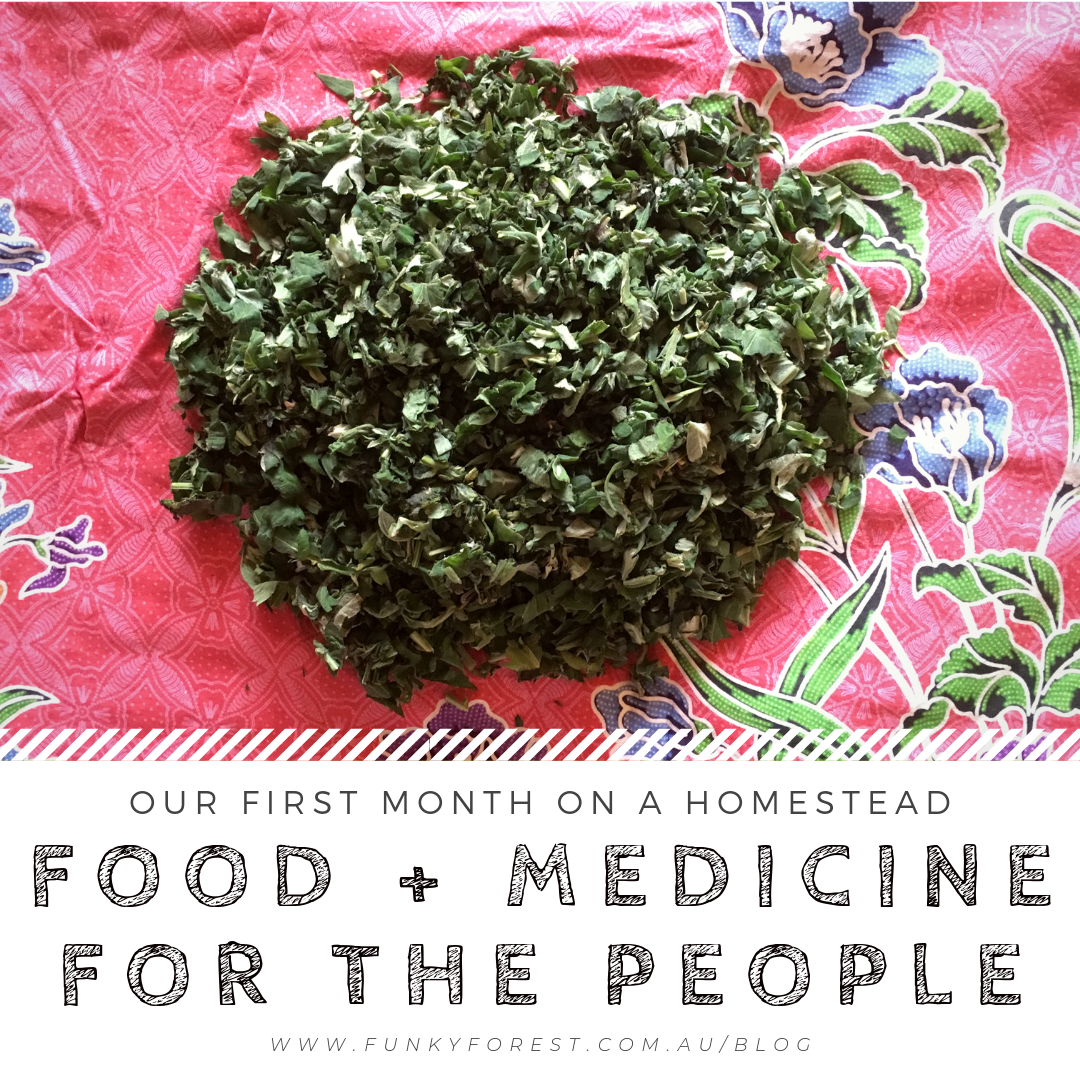
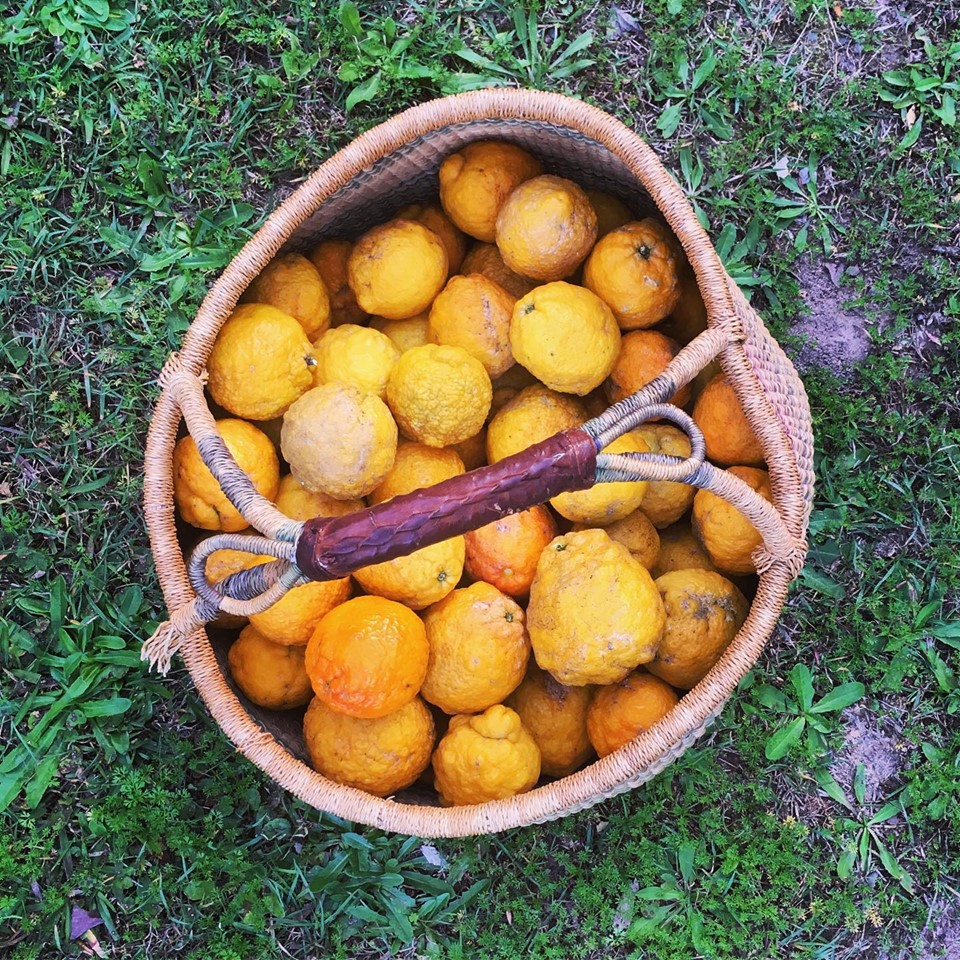
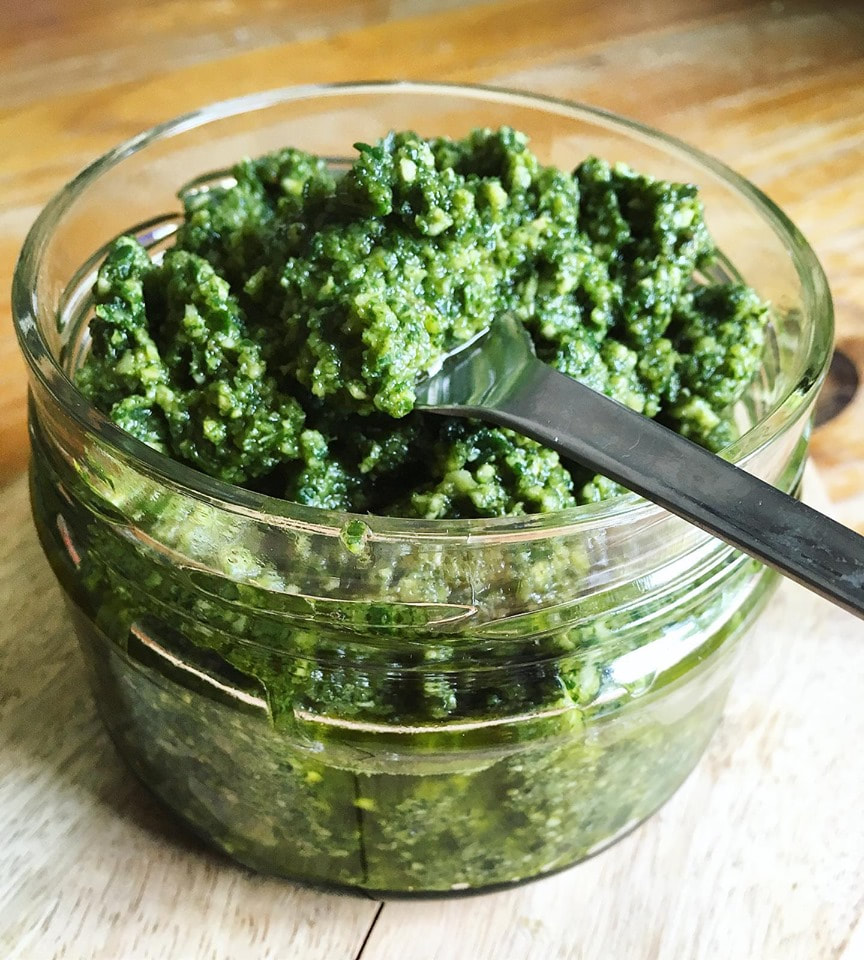
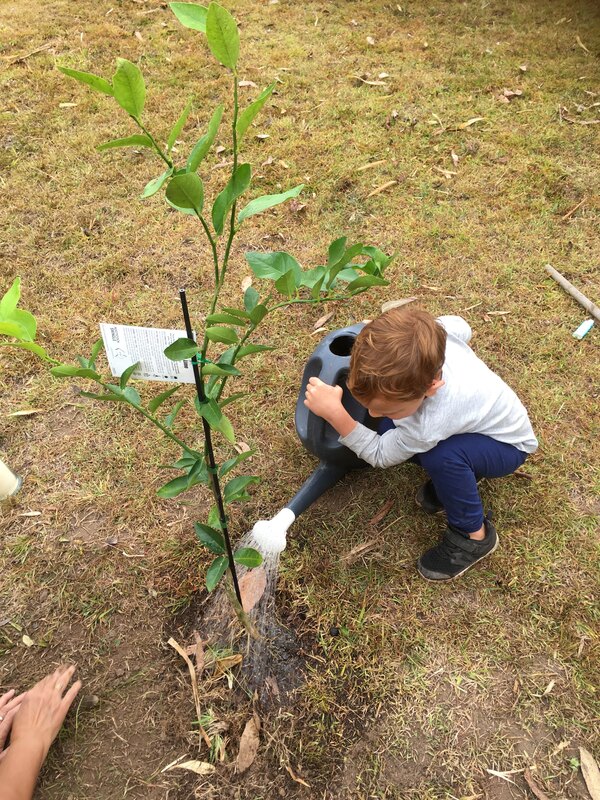
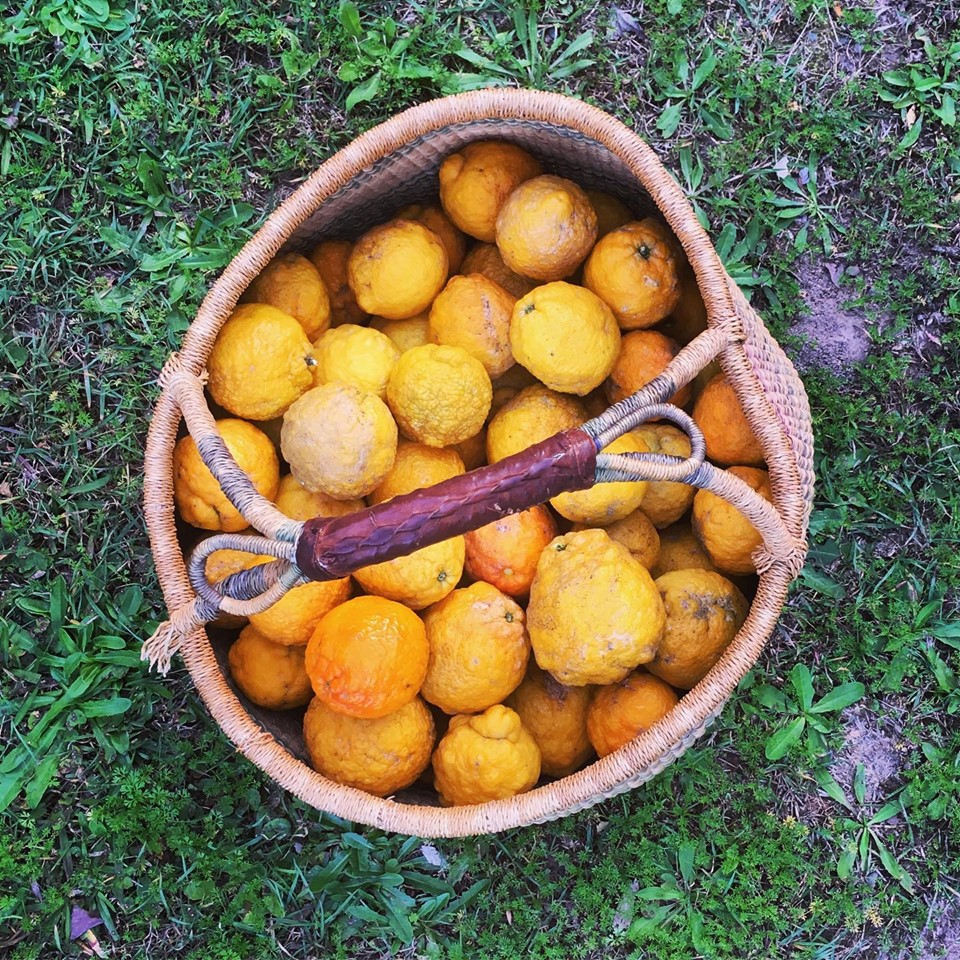
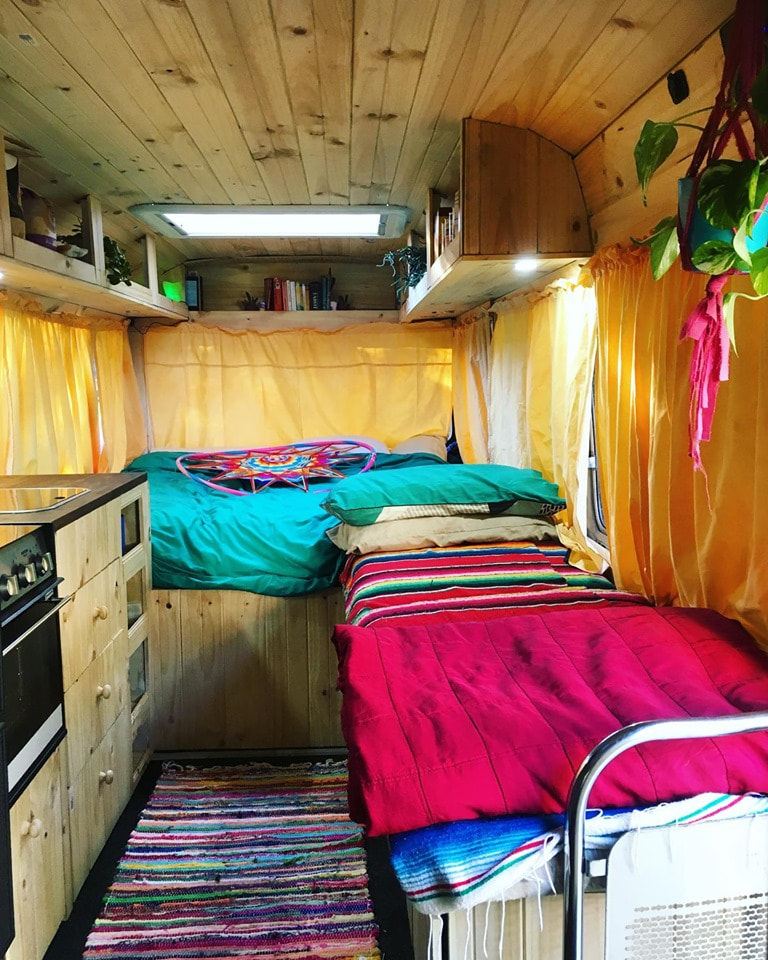
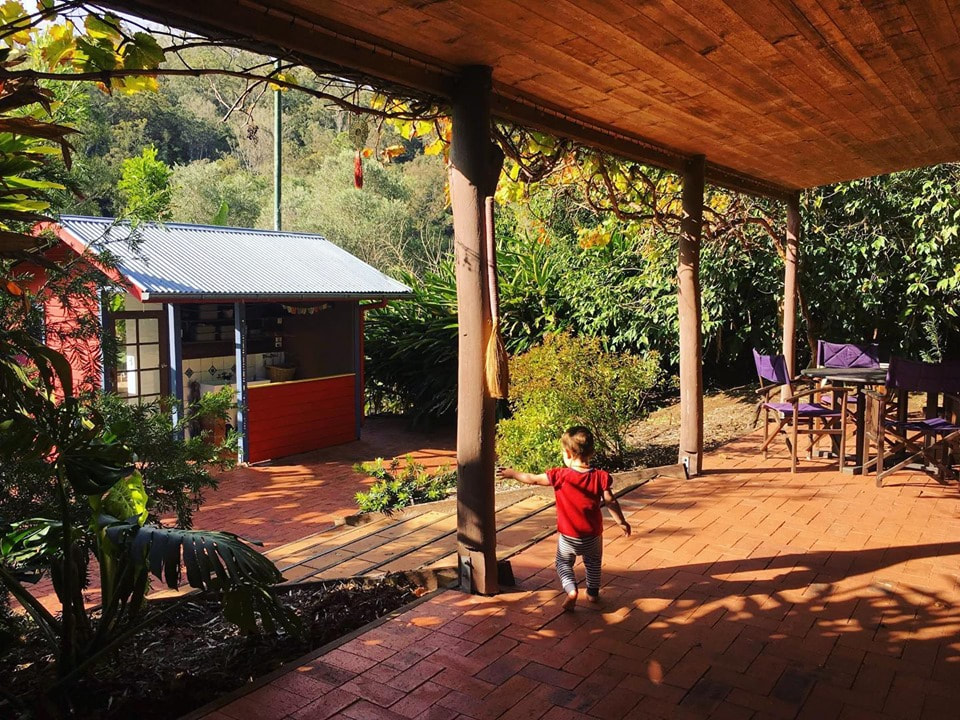
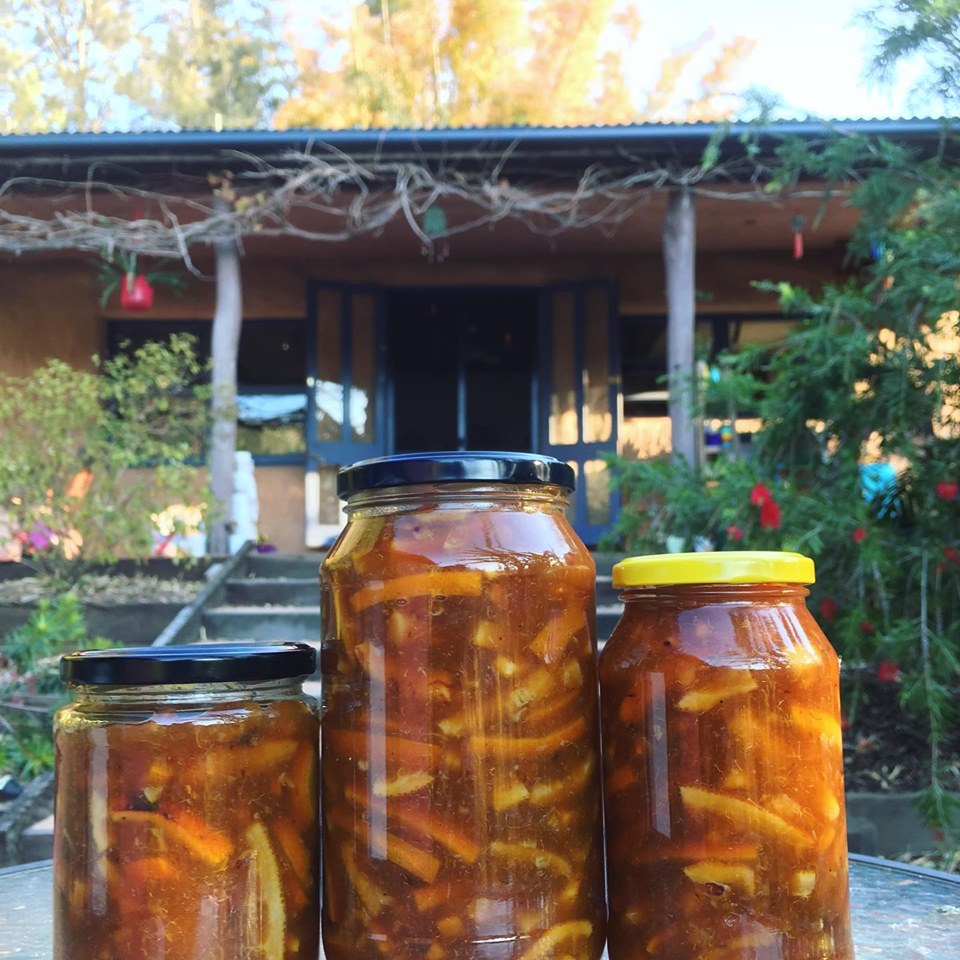

































 RSS Feed
RSS Feed



